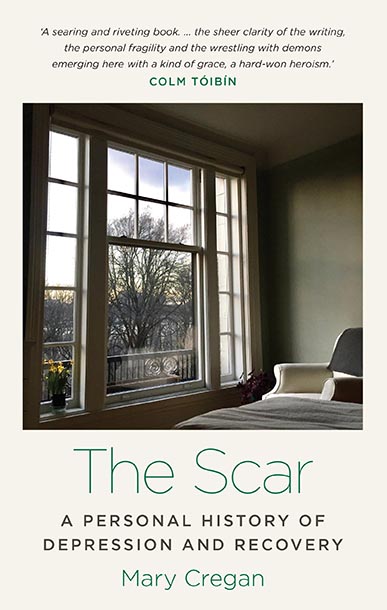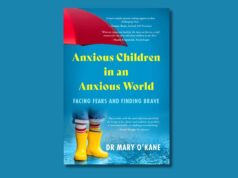Mental well-being
The Scar: a personal history of depression and recovery. Mary Cregan. Lilliput Press; 296pp; €16 pb; 21cm; 978 1 84351 760 3.
Unflinching, compassionate, and soul-baring
Mary Cregan dropped a jar of moisturiser on a shower floor, rinsed off a large piece of broken glass, felt with two fingertips along the left side of her neck to find the strongest pulse of the artery, and pulled the glass across it. Three months earlier, Cregan’s newborn baby, Anna, died because of a heart defect. After Cregan’s state of mind unravelled, she was admitted to a psychiatric hospital where she tried to end her life. The permanent scar on Cregan’s neck resulting from her 1983 suicide attempt symbolises the loss of her child and of herself.
Today, Cregan is remarried, has a son and lectures in English at the prestigious Barnard College in New York. The Scar is a reflective, unflinching, compassionate and soul-baring excavation of her life with depression. The book simultaneously distils and alchemises that experience.
If it seemed to Cregan that her depression was triggered by the death of her daughter, years of psychotherapy traced its origin to a cocktail of genetic risk and psychological strains that requires both ongoing medication and psychotherapeutic treatments. Retrospectively, Cregan identifies that her depression started in childhood, intensified during adolescence and was exacerbated by her daughter’s death. The currents that informed her nascent depression included a sense of shame, a domineering self-critical voice and the challenges of her religious belief. Here, the shadow of Cregan’s Irish-American Catholic heritage was formidable. Born in Philadelphia, she is one of six children. Her four grandparents were Irish. ‘Our culture,’ she writes, ‘was one of self-suppression, stoicism, and silence.’
The Scar is a startling hybrid. Its centrepiece is Cregan’s honest, surgically precise examination of her experience of mental illness. But it fuses the personal with literature, culture and science to situate her intimate account within the broader history of depression. For example, Cregan views her bereavement through the prism of Freud’s writings and the loss of his daughter. In the psychiatric hospital, Cregan received electroconvulsive therapy (ECT). She contrasts her positive experience of ECT with the public attitude towards it after One Flew Over the Cuckoo’s Nest. In the five years after the film’s 1975 premiere, the use of ECT in the US decreased by 46%. Similarly, in the context of investigating why the anti-depressant Lexapro offered her more relief than Prozac, Cregan uncovers how the number of Americans being prescribed anti-depressants rose by 400% after the introduction of Prozac in 1988.
Bubbling underneath these widely researched explorations is a gnawing tension: despite her candour, we sense Cregan’s unease about placing her own story at the heart of the book. But that reluctance is overcome because Cregan understood that ‘writing about depression – and not just for myself – was the only way to wrestle with a subject so difficult to grasp’. Ultimately, The Scar is an insider’s courageous record of confronting their past to stoutly refute the stigma that still surrounds depression.
Brendan Daly
Brendan Daly is a freelance print and radio journalist who has written for publications in Ireland the US.
The Scar is available in all good bookshops or from Lilliput Press.













